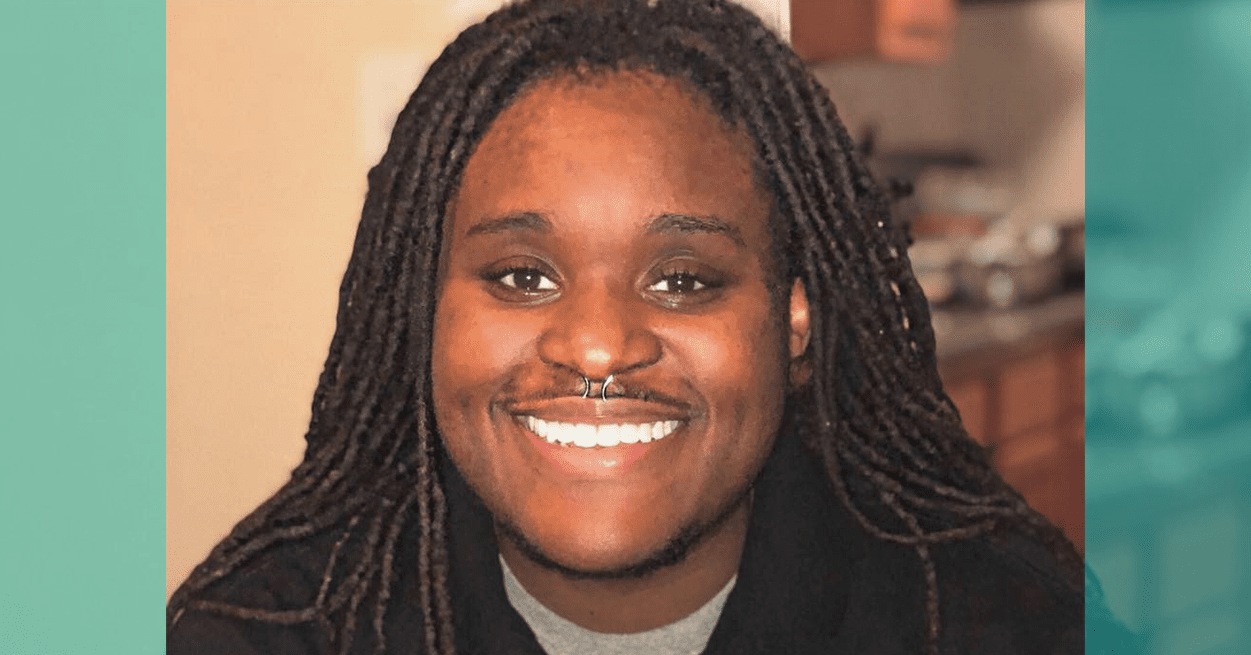By Cris Lee
In September 2015, I started my first full time job and besides getting used to the responsibilities of my new role, my other major life task was to purchase health insurance. I found a plan that fit my needs and set up an online profile so I could track my premium, co-pays, appointments, and overall wellness.
Before I had even chosen a Primary Care Physician, I realized that I had an overdue health care reminder. I needed to get a pap smear to screen for cervical cancer. I first learned about the test in college and avoided it, but at 26, there was no way I could keep ignoring it. I finally chose a Gynecologist (GYN) and scheduled an appointment for March 28, 2016.
In the weeks leading up to my appointment, I was really anxious. I am transmasculine, non-binary individual, and extremely uncomfortable with the idea of having my genitalia examined. I felt disconnected to the sexual organ that was a part of my body and going to see a GYN made me experience gender dysphoria. That’s the distress or uneasiness that a person experiences because the gender they were assigned at birth doesn’t match their identity.
Unfortunately, my GYN didn’t make me feel any better. “Why haven’t you ever had a pap smear?” she asked. I hesitantly explained that it was because I had only been sexually active with women, and felt her judgement as she told me that I still needed to have the test done.
I left feeling frustrated that my first interaction with a GYN had been so unpleasant. I am due for another pap smear in about a year and am determined to have a better experience. Here are some of the ways I’m taking control of my experience this time around:
Locate a GYN who is affirming of who you are.
As a part of my insurance, I am able to select my health care provider online. Most of the providers have profiles with information about their clinical interests, experience, and testimonials from other patients. When choosing a GYN for the very first time, I tried to take into account this information, but made my final decision based on how convenient it would be to get to her office. Since then, I have been able to talk to my therapist, who is experienced in providing care for transgender individuals, to locate a GYN who is affirming in a way my first one wasn’t. You can find affirming providers near you by visiting Rad Remedy or My Trans Health.
Contact your GYN to let them know your gender identity and/or pronouns.
This is a crucial step, especially if you aren’t able to determine how affirming the GYN is. I didn’t do this but wish I had because it would have made me feel a little more comfortable talking about my sexual health. You can contact the office for your GYN and ask to speak with them directly so that they can make a note on your file. If you are like me, and sometimes get anxious talking on the phone, see if you can send your doctor a secure message through your online profile.
Gather moral support.
If you can, ask a close friend to come to the appointment with you. At the time, my partner and I were long-distance, but she was able to text as I went through the process. I also had a close friend who was available to chat with me before and after I had finished the pap smear. Having their support, even though they could not be with me physically, was enough to help me follow through even though it was the last thing I wanted to be doing in the moment.
Treat yourself to something nice as a reward for taking care of yourself.
After the pap smear, I was tired. I went home, ordered General Tso’s Tofu and binge-watched Netflix. I recommend grabbing your favorite meal or doing something that you really enjoy to unwind. You deserve it because you have just completed a very important step in maintaining your sexual health.
As a trans man who battles gender dysphoria, I know how triggering medical exams can be. The thought of having genitalia so closely examined is so distressing that there are some transmasculine individuals who have never made an appointment with a gynecologist. In their defense, the medical system is not really created with the transgender people in mind. A trans and gender-nonconforming affirming health system would account for gender dysphoria, chosen names, pronouns, and make sure that all doctors, nurses, and receptionists were trained in providing care to everyone, not just patients who fit the binary of gender and sexuality.
When you are a trans or gender-nonconforming person, choosing a health care provider and going to appointments can be really hard, but doing so is important for preventing HIV and other sexually transmitted diseases. Hopefully, the steps above will encourage another transmasculine individual to move forward in maintaining their health.
Cris Lee, 28, is a Queer Trans Man from Chicago, IL. He earned a Bachelor of Arts in English Writing from DePauw University in 2012 and a Master of Education from Lesley University in 2016. He is a Programs Coordinator at 826DC, a nonprofit organization dedicated to supporting students with their writing skills and to helping teachers inspire their students to write. In his free time, he enjoys reading, writing, listening to music and playing video games. You can follow him on YouTube and Tumblr @ABlckTransJourney and on Twitter and Instagram @cymlee.




